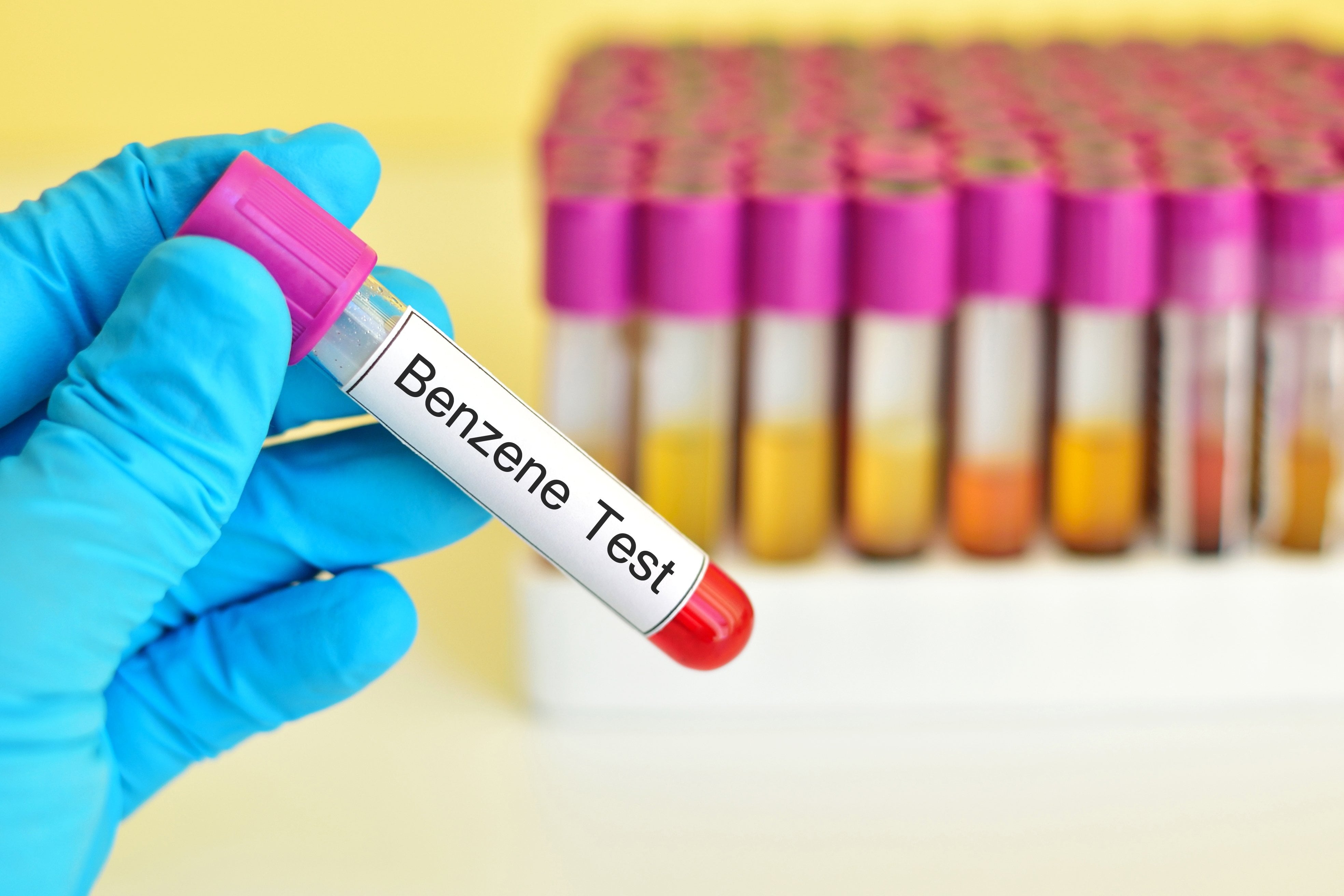
Benzene is a word that most of us have heard, but did you know that benzene can get into water sources? Benzene, itself, is a clear, aromatic, volatile organic chemical. It is normally found as a liquid. It is also very flammable. Benzene is formed through natural processes but is most often formed from industrial processes. Benzene is a natural component of gasoline, crude oil, and tobacco smoke.
The industrial uses for benzene are many and include its use as a chemical in the process of making rubber, plastics, synthetic fabrics such as polyester and nylon. It is also used as a solvent in commercial printing, manufacturing of paints, dry cleaning, and many other processes.
There are possible health effects for those who ingest benzene through their water over some time. Some of the adverse effects benzene can pose to those exposed to it include severe anemia, decreased blood platelets, and increased risk of getting cancer.
The EPA has established an enforceable regulation for benzene, called a maximum contaminant level (MCL), at 0.005 mg/L or 5 ppb (parts per billion). Some states have gone further and have set even higher standards for benzene in drinking water.
Leaching from gasoline storage tanks and landfills is one of the primary ways that benzene gets into drinking water sources. It can also get into water supplies via industrial discharges from factories or smaller companies (commercial printing, dry cleaning, etc.).
Consumers who live near possible sources of discharge may wish to be particularly alert to benzene contamination of their drinking water. This can be especially important for those who live near above or below ground gasoline storage tanks. Even smaller storage tanks, such as found in service stations, can pose a risk if they begin to leak or leach into the groundwater supply.
If you wish to learn more about your exposure to benzene you can take advantage of the federal law known as the Emergency Planning and Community Right to Know Act (EPCRA). This federal law requires facilities in certain industries to report their releases of chemicals. For more information on the uses and releases of chemicals in your state, contact the Community Right-to-Know Hotline: (800) 424-9346.
Water treatment plants can lower or remove benzene from drinking water through proper filtration through granular carbon filters along with aeration of the water.
Homeowners who want to ensure that their drinking water is free of benzene, and other types of contaminants, can install quality water filters in the home. Many types of water filters such as a whole house, point of use, and shower head filters, can effectively help to remove any leftover benzene before it is ingested.


Share:
Drinking Water Contaminants: Cryptosporidium
Water Contaminants: Atrazine in Drinking Water